What I didnt learn in vet tech school
School fully prepared me to be a great veterinary technician. But what happened after graduation changed my life.
Veterinary technology school isn't easy. The curriculum is challenging, the time required to study is enormous and the responsibility of providing care for the animals living on campus never lets you forget why you're there. I had some of the best instructors I've ever met, and they were the reason that I became an instructor. I had such a good education and such a good experience receiving that education that I wanted to provide the same opportunity to others.
But there are some things that no amount of schooling can ever prepare you for. Some renewed my faith in the human spirit and some damaged me irreparably. But all taught me important lessons. Here are a few things I've learned since I graduated.
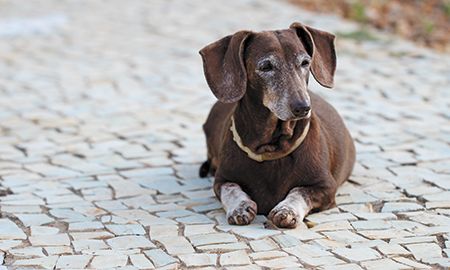
shutterstock.com
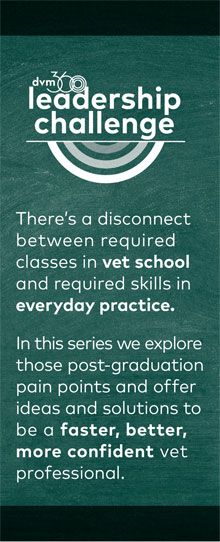
Sometimes I'm most needed on the other side of the exam table. I'd been working at a small clinic for about two months when I saw an elderly woman getting out of her car with an ancient dachshund following her on its leash.
“Ugh, not this woman,” the receptionist said. “She needs to put that dog to sleep. We've been trying to get her to do it for months.”
The dog had a myriad of health problems. None on their own were reason enough to give up, but together they added up to a poor prognosis. I showed the woman to an exam room and lifted her dog onto the table. We made small talk as I took the dog's vitals until the woman fell silent.
She looked up at me and said, “I know I need to put her to sleep. But she's all I have in the world. I lost my husband years ago, my kids have all moved far away and all my friends have died. When I lose her, I'll have no one.”
Her words hit me right in the gut. I pictured my own grandmother standing there, contemplating the idea of going home to an empty house and packing away her only friend's belongings and facing a quiet future alone. I thought about this throughout the doctor's exam and while he gave her the news that we could do nothing more for her beloved dog, who was now suffering.
The woman nodded and said, “Then I guess I need to let her go.” While the receptionist printed off the consent forms, the woman said to me, “I'm so afraid of being alone.” It was in that moment that I saw an opportunity to change her memory of this terrible day. I told her, “You're not alone. I'm here with you.”
I moved to the other side of the exam table and held one of her hands while she stroked her dog's face with the other. When the doctor confirmed that the dog had passed, the woman sighed, tears filling her eyes and softly running down her face. She cried silently for a while, never letting go of my hand. Finally, she patted her cheeks dry with a crumpled tissue she pulled from her pocket. She turned, looked me in the eyes and said, “Thank you.”
That day I was needed more as a granddaughter than a vet tech.
I can be a hero. Two couples came into my clinic one afternoon. They'd been hiking the trails near their homes when they found a German shorthaired pointer. They brought her to my clinic with the hope that she had a microchip and could be reunited with her owner. Sure enough, she was chipped.
Four tense strangers waited in the lobby as I spoke with the microchip company. The representative put me on hold while he called the dog's owner. He came back on the line, a smile in his voice. “The owner has been searching frantically for her for six days,” he told me. “And her name is Maggie.” I turned to the dog and called her name. She perked up and ran behind the reception desk to nuzzle me.
He connected my call to the owner, and I gave her directions to the clinic. The four hikers watched with anticipation as cars came and went. Finally, a truck pulled up and a woman got out. The look on her face told us that this was Maggie's owner. Their reunion was full of tears and kisses. It turned out that the hikers lived just one street over from Maggie's home. The four hikers and Maggie's mom all left happy, planning to meet for coffee. I shed a few happy tears of my own that day.
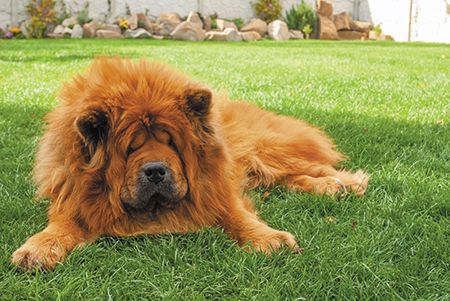
shutterstock.comI need to cry. A red chow mix had been hospitalized at my clinic for a few days. I was the only one in the building one evening, finishing up closing duties and getting patients ready for the night. As I checked vitals on the chow, something told me she wouldn't make it until morning.
I called the vet at home and told her what I was seeing. She called the family, who was out of state on an unavoidable trip. They wanted desperately to be with their pet in her last moments, but they wanted more to avoid her suffering. The vet called me back with this news and told me she was on her way in to attend to her patient's final needs.
Knowing that this sweet dog only had about 45 minutes left of her long, happy life, I unhooked her from all the machines and carried her outside. I laid her in the grass and brushed her fur where she could feel the warm sun as it slipped below the horizon. While the vet prepared to administer the injection, I turned on Norah Jones' Come Away with Me and told the chow how much her family loved her.
After I left the clinic that night I sat in my bathtub and cried for two hours. I texted a veterinarian friend of mine, who has been my rock many times. I told her what had taken place that evening. I couldn't understand why I kept crying, because I'd only known this dog for a few days.
My friend asked me, “Yes, but how many dogs haven't you cried for? How many patients have you watch die that you swallowed your emotions over?”
I learned that night that I need to allow myself to grieve the same way I tell my clients that they need to give themselves time and permission to grieve the loss of their companion.
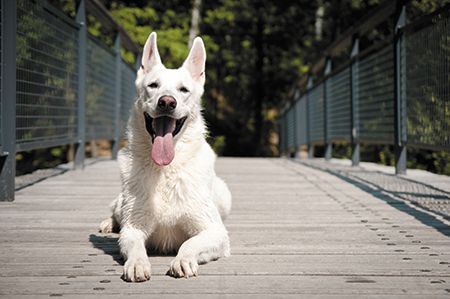
shutterstock.comI can change people's lives. Eleven years ago, I volunteered at the Arizona StandDown, an event providing services to homeless veterans with the intent of getting them back on their feet. I told the coordinators that I was a certified veterinary technician and they gave me a table, where I spent two days educating pet owners on pet care.
One man introduced me to his big white German shepherd. The man was tall and would have been fairly imposing had his face not lit up as he spoke animatedly about his dog's favorite games and how funny he looks when he sleeps on his back.
This large man was currently living in a tiny Geo Metro with his canine companion. He told me when people gave him money he saved it so he could get his dog Rimadyl for his arthritis, and how he shared any food he with his pet, making sure the dog ate first.
I asked the man how long it had been since he'd eaten a good meal of his own. He thought for a moment and then admitted that he couldn't remember. That was the moment that I felt something ignite inside of me.
I founded Vets for Vets' Pets and have been providing full veterinary services at the StandDown for the last eleven years with a team of 200 volunteer veterinarians, technicians and members of the public. At our last event we administered 465 vaccines, spayed or neutered 47 pets, groomed 43 dogs that may not have had a bath in years, gave food and supplies to 525 pets, and provided boarding for 197 pets so their veteran owners could receive services such as housing assistance, medical care and job placement.
Every year I get the privilege of having these forgotten people-veterans who are living on the very streets they fought to defend-look me in the eye and say thank you. By taking care of their pets, these veterans can focus on getting the care they need.

shutterstock.comSometimes I'll be called upon to give up a piece of myself. One day a large, muscular man with a shaved head and lots of tattoos came into my clinic carrying a tiny chocolate brown Chihuahua puppy weighing just under 2 pounds. The man wore sunglasses, but I could hear the tears in his voice as he told me something was wrong with his pup.
The dog had been without food for around 12 hours; the man simply didn't realize how often tiny puppies need to eat. I asked the receptionist to show the man to an exam room and then rushed the puppy to the treatment room. The puppy's blood glucose was extremely low, so we set a catheter and administered a dextrose solution. We had to put in a jugular catheter because the dog's veins were so small. We tried everything, but the puppy's health continued to decline and he started having seizures.
The doctor told the man that his puppy wouldn't make it through this and that the best thing he could for his dog was to let him go. The man struggled with his decision for too long as the puppy's seizures came faster and lasted longer.
Finally he consented to euthanasia. The doctor was in another exam room, where she was involved in a procedure. I stuck my head in the room and told her I had consent. She asked me to administer the injection so the pup didn't have to wait and suffer any longer.
I'd euthanized only one other animal before in my career. I don't remember what was wrong with the cat, but I do remember how I felt after I gave the injection and heard its heart stop. It felt like a little piece of me died that day. I decided that I would never do it again because I couldn't handle the psychological effects.
But this day, the puppy needed help and I was the only one able to offer it. I got through it by explaining the procedure as I performed it in a semi-disconnected clinical manner to a veterinary assistant extern. I showed her how to label the body and note it in the medical chart, and then I closed myself in the staff bathroom and collapsed in a weeping pile on the floor.
I know I did the right thing, but the memory of watching that puppy pass away as I injected the blue solution into its tiny vein still haunts me.
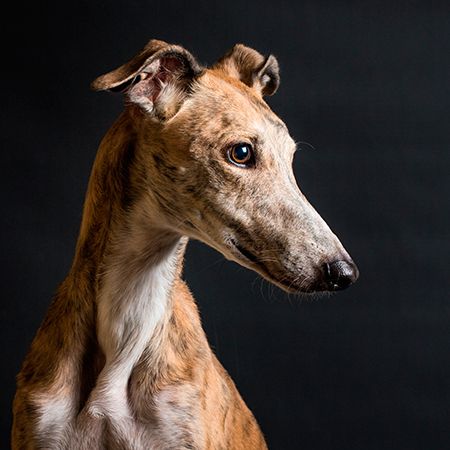
shutterstock.comI can fall in love with the clients as much as their pets. A young couple adopted a racing greyhound who had been relinquished by his owner when he broke his leg and could no longer race. The couple waited anxiously in the lobby during the surgery and chatted with us about some of his silly antics. There was just something charming about this couple that drew us to them.
After surgery, they were joyfully reunited and sent home with post-op instructions to come back in two weeks. But only a few days later they returned, the husband carrying the greyhound in his arms. They had taken the E-collar off while they sat on the couch with the dog so they could cuddle with him. And then they forgot about it while they ran to the store to pick up a forgotten item. While they were gone, the dog managed to chew off two of his toes.
We were able to pull enough skin together to repair the damage, but the dog never regained full function in the leg, and we eventually amputated it.
The couple was completely distraught about their mistake and felt they'd let their dog down. By this time, the entire team had fallen in love with this family. All of the technicians got together and held a bake sale to help offset the costs the couple was now facing. They became friends of the clinic, and we were always happy to see them and their happy, well-loved, three-legged greyhound.
I can collaborate with veterinary professionals all over the world. I have joined several Facebook groups with other veterinary technicians and veterinarians. The ones I find most helpful share advice, discuss how to handle difficult clients, talk about benefits and disadvantages of medications and treatments and even provide support and lend a virtual ear to people facing difficulties at work.
I've learned about medications I never knew existed and different ways of administering treatments. I've had the pleasure of conversing with people who are excelling in the field and the privilege of connecting with some real veterinary rock stars. I've been part of debates about ethics and discussions on laws. I've gained so much by connecting with my colleagues all over the globe.
While I was in school I learned everything I needed to know to excel in my field. I developed excellent hands-on skills and learned not only what I needed to do but why I needed to do it and how to best accomplish it. But after graduation I learned the rest of what it truly means to be a veterinary technician.
Julie Carlson is a freelance author and a Certified Veterinary Technician. She is the winner of the 2015 Hero Veterinary Technician Award from the American Humane Association and the Founder of Vets for Vets' Pets, a nonprofit organization providing medical care to the pets of homeless and at-risk veterans. Julie has five cats and two Chihuahuas and lives in Phoenix, Arizona.







